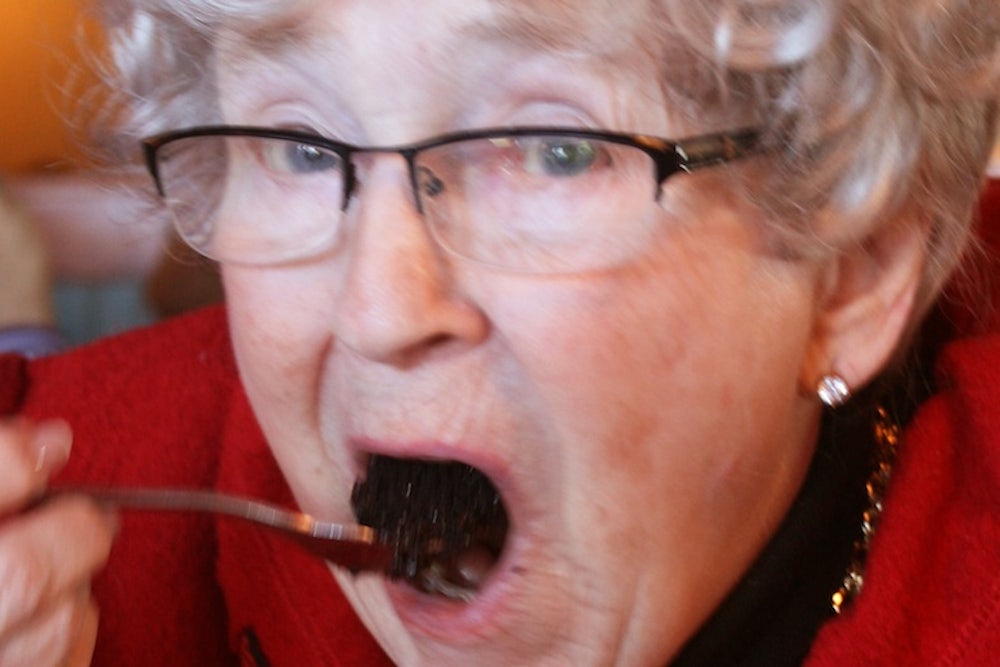For most of us, thinking about gratitude is a once-a-year kind of thing. For Dr. Robert Emmons, it’s a career. Emmons— Professor of Psychology at UC Davis, Editor-in-Chief of The Journal of Positive Psychology and author of The Psychology of Gratitude and Gratitude Works!: A 21-Day Program for Creating Emotional Prosperity—has been studying the science and philosophy of gratitude since 1998. Last year, he won a $5.6 million grant from the John Templeton Foundation to support his research, which currently focuses on the development of gratitude in children.
Alice Robb: Who is the most grateful? Are some people hard-wired to be more grateful than others?
Robert Emmons: Older women tend to be the most grateful. Younger men are the least grateful. I don’t think there is hard wiring. Gratitude is a choice that we can become better at if we deliberately cultivate it. It really comes down to a choice, but it also takes dedicated practice to reframe one's thinking in this way.
People with stronger dispositions toward gratitude tend to be more spiritually and religiously minded. Not only do they score higher on measures of traditional religiousness, but they also scored higher on non-sectarian measures of spirituality that assess spiritual experiences (e.g., sense of contact with a divine power) and sentiments (e.g., beliefs that all living things are interconnected) independent of specific theological orientation.
AR: How do you measure gratefulness?
RE: We have a short questionnaire which measures the tendency to be grateful or not as a personality characteristic.*
AR: What are the psychological benefits of expressing thanks or gratitude?
RE: When people are grateful, they experience “calm energy”—they feel more alert, alive, interested, enthusiastic. They feel more connected to others. Highly grateful people have a worldview in which everything they have and life itself is a gift—this leads to a different interpretation of experience: not taking things for granted, not getting used to positive conditions. Gratitude also serves as a stress buffer; grateful people are less likely to experience envy, anger, resentment, regret and other unpleasant states that produce stress and thwart positive emotions. So whether things are going well or poorly, gratitude is an effective approach to life.
AR: How can people become more grateful?
RE: Keep a gratitude journal. Take five to ten minutes to write at least every other day. If you do not have a pen and paper, use the speech-recognition feature on your smartphone to record your gratitudes in the memo pad or equivalent app on your phone.
Seek gratitude density: Go for depth over breadth. Give details for each entry—the journal is more than just a list of stuff. Try to include some surprises. What unexpected blessings did you benefit from today? What were you dreading that did not happen?
AR: Are people more grateful on Thanksgiving?
RE: They are, but it’s only a temporary jolt—it wears off before they hit the malls on Black Friday.
*Take Emmons' test to find out your "Gratitude Quotient":
How Grateful Are You? Test Your Gratitude Quotient
1 = strongly disagree
2 = disagree
3 = slightly disagree
4 = neutral
5 = slightly agree
6 = agree
7 = strongly agree
____1. I have so much in life to be thankful for.
____2. If I had to list everything that I felt grateful for, it would be a very long list.
____3. When I look at the world, I don’t see much to be grateful for.
____4. I am grateful to a wide variety of people.
____5. As I get older I find myself more able to appreciate the people, events, and
situations that have been part of my life history.
____6. Long amounts of time can go by before I feel grateful to something or
someone.
____7. I have been richly blessed in my life.
____8. To be honest, it takes an awful lot to make a person like me feel
appreciative.
____9. I have a wonderful sense of thanksgiving for life itself.
___10. I often reflect on how much easier my life is because of the efforts of others.
How to Calculate Your Score
1. Add up your scores for items 1, 2, 4, 5, 7, 9 and 10.
2. Reverse your scores for items 3, 6, and 8. That is, if you scored a "7," give yourself a "1," if you scored a "6," give yourself a "2," etc.
3. Add the reversed scores for items 3, 6 and 8 to the total from Step 1. This is your total GQ score. This number should be between 10 and 70.
How to Interpret Your Score
65-70: Extremely high gratitude. People who score in this range have the ability to see life as a gift. For you, gratitude is a way of life.
59-64: Very high gratitude. Your life contains frequent expressions of gratitude and you are able to readily acknowledge how others have helped you. The next 21 days will nevertheless help you recognize and enhance your gratefulness in every area of your life.
53-58: High gratitude. You are above average in gratitude and find it relatively easy to spend time reflecting on your blessings. You will probably find much to enjoy in the next 21 days.
46-52: Average gratitude. You may find it easy being grateful when things are going well in your life; but may have difficulties maintaining a grateful outlook in tough times. You may find good value in gratitude journaling and the other practices over the next 21 days.
40-45: Below average gratitude. You find it challenging to find reasons for gratitude in your life. Life is more of a burden than a gift. Perhaps you are just going through a downturn. But if that’s not the case, going through the journaling exercises over the next 21 days may make a difference in the way you see the world and live your life.
